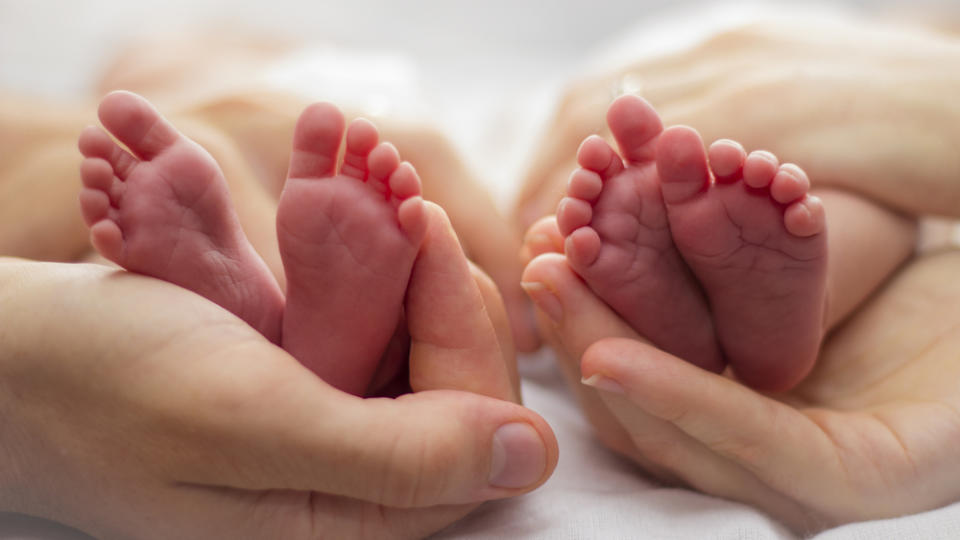Mom's Delivery of a 'Surprise' Twin Leads to Suspension for Her Midwife
November 19, 2018

A midwife in Australia is being investigated by regulatory authorities after delivering "surprise" twins to a mom who was expecting one baby. Martina Gorner, from Ten Moons Homebirth Services, was suspended from practicing earlier this month by the Nursing and Midwifery Board of Australia while the investigation is conducted, a spokesperson for the board told nine.com.au.
The controversy was first brought to the public's attention when, on October 19, Gorner took to Facebook to share about the birth on the Ten Moons Facebook page. “Mum gave birth to her sweet little baby boy in water and then we thought the placenta was about to come... but as it turned out, there was another baby boy about to make his entrance into the world,” the post read. “What a super hero mum… what an amazing birth!! The twins are identical twins."
Of course followers wanted to know how this could have happened, given that ultrasound scans are pretty much a given during pregnancy. The response: “Mum decided not to have any scans during this pregnancy.”
Initially, the Ten Moons page reported that the babies were "happy and healthy," but in a follow-up, it was revealed that the babies, who were born premature at 35 weeks, were transferred to the hospital via ambulance, and "one of the twins experience (sic) respiratory difficulties."
At the hospital, an employee lodged a complaint against Gorner, and in turn, she was suspended by the AHPRA (Australian Health Practitioner Regulation Agency), according to an online petition that was created in the midwife's defense and has wracked up over 38K signatures.
“This birth unfortunately had terrible implications for Martina, one of the attending midwives, because when mum brought her happy and healthy babies in for a check-up, a hospital staff member made a complaint and Martina was suspended," the petition reads. "This, many of us feel, is an outrageous tragedy.”
Meanwhile, a spokesperson for the Nursing and Midwifery Board of Australia has not commented on the case directly but released the following statement, according to 9News: “Immediate action to suspend a practitioner’s registration is only taken in the most serious cases when the NBMA believes it is necessary to take action to protect the public. NMBA’s role is to keep the public safe and ensure practitioners are meeting the trust the public places in them. Before a decision to take immediate action is made, a practitioner is given notice and an opportunity to show cause as to why the action is not necessary.”
Now, the battle for Gorner to regain her ability to practice looks as though it may be a costly one for the midwife. In addition to the petition, a GoFundMe has been set up to help raise funds for her legal fees.
"Martina's pregnant families need her back NOW, we can't wait for possibly years on AHPRA," the GoFundMe reads. "We want Martina to challenge her suspension, to lodge an appeal against AHPRA's decision. We want her to get (even) better legal support. We want this dangerous precedent overruled. As it stands, what midwife anywhere in Australia will support a homebirth where the family has declined having any ultrasound? However Martina's AHPRA Hearing cost her approximately $35,000, so she can't appeal without our support."
So far, the donation page has raised more than $20K of a $60K goal.
While Gorner's case is catching the attention of people all over the globe, the Melbourne Homebirth Association points out that her experience is "not uncommon." Midwives conducting homebirths often faced similar types of investigations.
“Almost half of Australia's privately practicing midwives have been reported to AHPRA (Australian Health Practitioner Regulation Agency), and the vast majority of notifications come from hospital staff, not from their clients," a November 6 post from the association noted. "AHPRA, NMBA and most hospitals continue to struggle to understand that birthing women retain the rights to make choices in relation to their own care, even where those choices fall outside the guidelines.”

